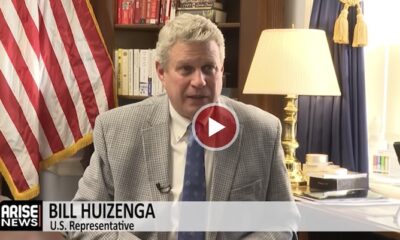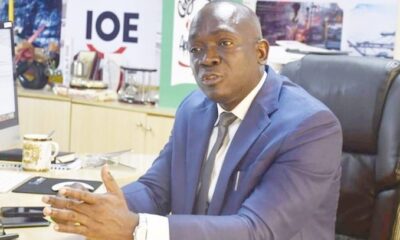Business
Nigeria’s Mining Sector Revenue Surges to N26 Billion by 2025

The Nigerian mining sector has achieved a significant milestone, with revenues from licensing fees soaring to N26 billion as of October 2025. This represents a remarkable increase from N6 billion in 2023 and N12 billion in 2024. The announcement was made by the Minister of Solid Minerals Development, Dr. Dele Alake, during the groundbreaking ceremony for a new $400 million rare earth minerals processing plant in Uke, located in Nasarawa State.
According to the World Mining Data 2025, Nigeria produced 108,414,478 metric tonnes of minerals in 2023, ranking 24th out of 166 countries in total mineral production. In terms of monetary value, Nigeria ranks 20th, with total mineral production valued at $48.961 million. Dr. Alake highlighted these achievements during his speech titled “The Road to Self-Reliance in the Solid Minerals Sector,” emphasizing the sector’s transformation under the leadership of President Bola Tinubu.
The minister noted that recent advancements in global technology, particularly those driven by climate change, have spurred the growth of electric vehicles and appliances. He asserted that the mining sector is becoming a pivotal component of Nigeria’s economic growth, supported by stricter compliance with mining laws and enhanced security measures to attract more investors.
In his address, Dr. Alake remarked, “Remittances from licensing fees to the federation account have increased from N6 billion in 2023 to N12 billion in 2024, to N26 billion as of October 2025.” He drew parallels with successful projects, stating, “Dangote Refinery has shown that we can restore our capacity to refine our crude oil. Segilola/THOR has shown that we can refine our own gold. Avatar and ASBA have demonstrated that we can separate and process our lithium. Hasetins Group shall demonstrate that we can separate, process, and refine our rare earths.”
The Managing Director of Hasetins Group, Mr. Prince Jidayi, announced that the new processing plant is expected to create at least 10,000 jobs, contributing significantly to economic growth. He highlighted the plant’s role in diversifying Nigeria’s economy and reducing its dependence on oil exports. Jidayi emphasized that the facility would not only attract investors but also position Nigeria as a major player in the global mining industry.
Industry experts and stakeholders have welcomed this development, seeing it as a crucial step towards unlocking Nigeria’s economic potential. Jidayi stated, “With a capacity of greater than 10,000 jobs and an environmentally-friendly approach, the facility will boost local and national economies, creating numerous opportunities within our communities.” He reaffirmed the company’s commitment to fostering a diverse workforce across the regions in which they operate and ensuring sustainable practices to protect the environment while advancing industry standards.
The Governor of Nasarawa State, Engr. Abdullahi Sule, expressed strong support for the rare earth minerals processing plant, aligning it with President Tinubu’s seven-point agenda focused on value addition and security. He reiterated the transformative potential of this initiative for Nigeria’s mining sector and overall economy.
This substantial investment in Nigeria’s mining sector not only reflects the government’s commitment to harnessing the country’s rich mineral resources but also marks a broader shift towards sustainable economic practices and diversification.
-

 Entertainment3 months ago
Entertainment3 months agoAnn Ming Reflects on ITV’s ‘I Fought the Law’ Drama
-

 Entertainment4 months ago
Entertainment4 months agoKate Garraway Sells £2 Million Home Amid Financial Struggles
-

 Health3 months ago
Health3 months agoKatie Price Faces New Health Concerns After Cancer Symptoms Resurface
-

 Entertainment3 months ago
Entertainment3 months agoCoronation Street’s Carl Webster Faces Trouble with New Affairs
-

 Entertainment3 months ago
Entertainment3 months agoWhere is Tinder Swindler Simon Leviev? Latest Updates Revealed
-

 Entertainment4 months ago
Entertainment4 months agoMarkiplier Addresses AI Controversy During Livestream Response
-

 Science1 month ago
Science1 month agoBrian Cox Addresses Claims of Alien Probe in 3I/ATLAS Discovery
-

 Entertainment4 months ago
Entertainment4 months agoKim Cattrall Posts Cryptic Message After HBO’s Sequel Cancellation
-

 Entertainment2 months ago
Entertainment2 months agoOlivia Attwood Opens Up About Fallout with Former Best Friend
-

 Entertainment3 months ago
Entertainment3 months agoMasterChef Faces Turmoil as Tom Kerridge Withdraws from Hosting Role
-

 Entertainment4 months ago
Entertainment4 months agoSpeculation Surrounds Home and Away as Cast Departures Mount
-

 World2 months ago
World2 months agoCole Palmer’s Mysterious Message to Kobbie Mainoo Sparks Speculation





















